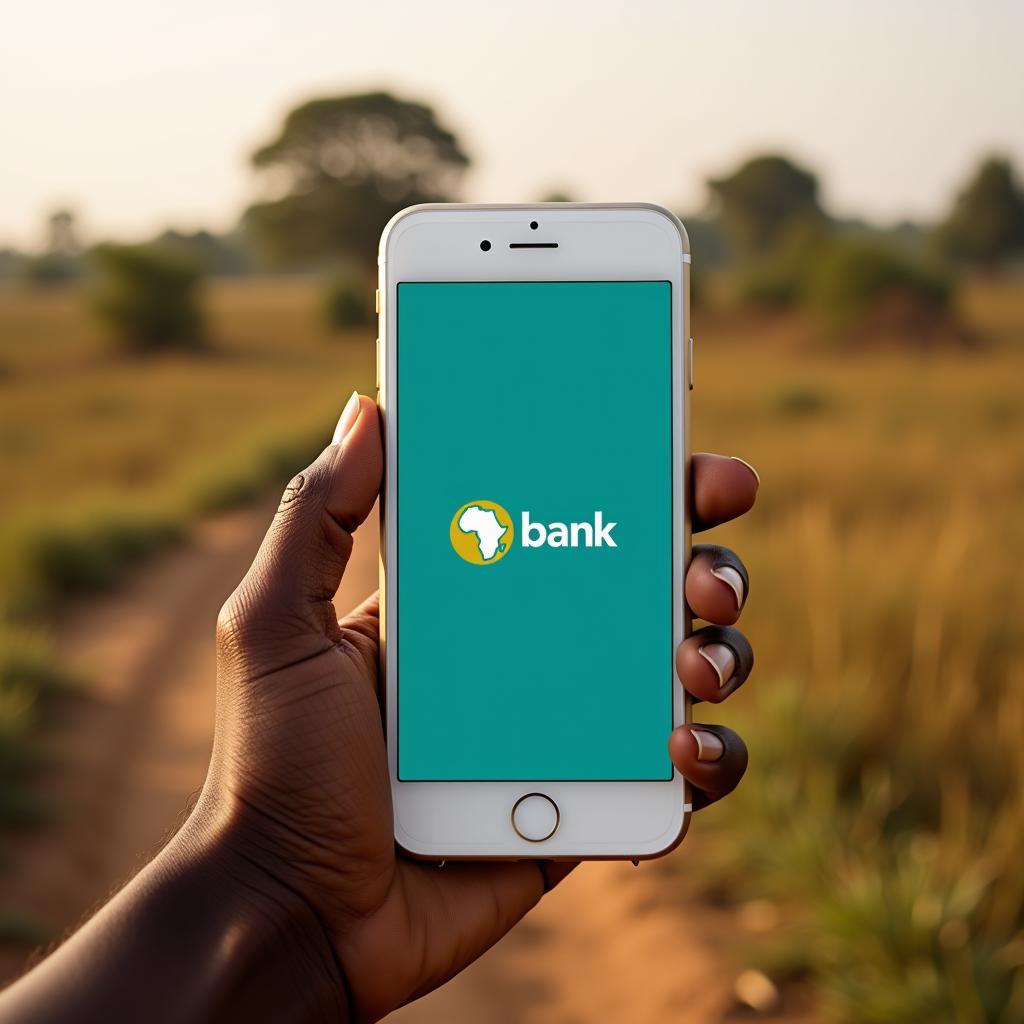Understanding African Bank: A Comprehensive Guide
The African banking landscape is a diverse and evolving ecosystem, encompassing a wide range of financial institutions that cater to the continent’s unique needs and challenges. From microfinance initiatives empowering rural communities to pan-African banking giants driving economic growth, understanding “African bank” requires exploring its multifaceted nature. This guide delves into the intricacies of African banks, shedding light on their history, functions, and impact on the continent’s development.
 Modern African Bank Branch
Modern African Bank Branch
The Evolution of Banking in Africa
The history of banking in Africa is intertwined with the continent’s colonial past. Early banking institutions were primarily established by European powers to facilitate trade and commerce within their respective colonies. These banks mainly served the interests of the colonial administration and businesses, with limited access for indigenous populations. However, the post-independence era witnessed the emergence of indigenous banks, often with government support, aiming to foster economic self-determination and financial inclusion.
Types of African Banks
Today, the African banking sector is a vibrant mix of diverse players, each with its specific focus and target market:
- Commercial Banks: These are the most prevalent type, offering a wide array of financial services to individuals and businesses, including deposit accounts, loans, and payment services. Examples include major players like African Bank Investments Ltd and others actively shaping the financial landscape.
- Development Banks: Established with a mandate to support economic development, these institutions provide funding for infrastructure projects, SMEs, and other sectors crucial for growth. The African Development Bank exemplifies this model, playing a pivotal role in financing continental development initiatives.
- Microfinance Institutions: Catering to the unbanked and underbanked populations, particularly in rural areas, these institutions offer small loans, savings products, and microinsurance to empower individuals and communities.
- Investment Banks: Focused on capital markets and investment activities, these banks provide services such as underwriting, mergers and acquisitions advisory, and asset management to corporations and high-net-worth individuals.
 Mobile Banking in Africa
Mobile Banking in Africa
Challenges and Opportunities
While African banks have made significant strides, they continue to face challenges:
- Limited Financial Literacy: A significant portion of the population remains financially illiterate, hindering access to and effective utilization of financial services.
- Infrastructure Deficits: Inadequate infrastructure, particularly in rural areas, poses challenges for expanding branch networks and leveraging technology for financial inclusion.
- Regulatory Frameworks: Evolving regulatory landscapes require banks to adapt continuously and navigate complex compliance requirements.
However, these challenges are outweighed by the immense opportunities:
- Untapped Market Potential: Africa boasts a young and growing population, presenting a vast untapped market for financial services.
- Technological Advancements: The rapid adoption of mobile technology and digital financial services has the potential to revolutionize banking and drive financial inclusion.
- Regional Integration: Initiatives like the African Continental Free Trade Area (AfCFTA) are fostering regional integration, creating new opportunities for cross-border banking and investment.
The Role of African Investment Banks
African investment banks play a crucial role in driving economic transformation by:
- Facilitating Investment: They connect investors with viable projects, channeling capital into critical sectors that drive economic growth.
- Supporting Infrastructure Development: They structure and finance large-scale infrastructure projects, essential for unlocking Africa’s economic potential.
- Promoting Entrepreneurship: They provide advisory services and access to finance for small and medium-sized enterprises (SMEs), fostering job creation and economic diversification.
African Bank Adderley Street: A Case Study
African Bank Adderley Street serves as a compelling example of a financial institution adapting to the evolving needs of the community. Located in a bustling urban center, the branch likely showcases the bank’s commitment to innovation, customer service, and community engagement. By offering a blend of traditional banking services alongside digital solutions, the branch caters to a diverse clientele.
 Personalized Customer Service in African Bank
Personalized Customer Service in African Bank
The Future of African Banking: A Vision of Inclusive Growth
The future of African banking is poised for dynamic growth and transformation, driven by technological innovation, regulatory reforms, and a growing focus on financial inclusion. As the continent continues on its path of economic development, African banks will play a pivotal role in shaping a more prosperous and inclusive future for all.
FAQs
1. What is the role of the African Finance Bank?
While there isn’t a specific institution called “African Finance Bank,” the term likely refers to financial institutions operating in Africa or focusing on African markets. These could be commercial banks, development banks, or investment banks contributing to the continent’s financial landscape.
2. How can I open a bank account in Africa?
The process varies depending on the specific bank and country. Generally, you’ll need valid identification documents (passport, residence permit), proof of address, and may need to meet specific eligibility criteria. It’s best to contact the chosen bank directly or visit their website for detailed information.
3. What are the challenges of mobile banking in Africa?
Despite its potential, mobile banking in Africa faces challenges like limited network coverage in rural areas, cybersecurity concerns, and the need for greater financial literacy to ensure safe and responsible usage.
4. What is the impact of fintech on African banking?
Fintech is revolutionizing African banking by enhancing financial inclusion, enabling faster payments, and offering innovative solutions tailored to the continent’s needs.
5. How can I invest in African banks?
Investors can explore options like investing in publicly listed African banks, investing in dedicated African financial sector funds, or exploring private equity opportunities in the African banking sector.
Need Help?
For any assistance or inquiries, please contact us:
Phone: +255768904061
Email: [email protected]
Address: Mbarali DC Mawindi, Kangaga, Tanzania
Our dedicated customer support team is available 24/7 to assist you.
